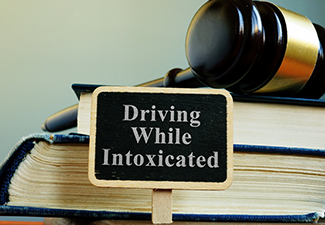Driving High: Texas DWI Charges
Nov. 4, 2022
 With different forms of legalization spreading across the country, more and more people are partaking in marijuana and consequently choosing to drive afterward. According to the Centers for Disease Control and Prevention, roughly 12 million Americans have reported that they’ve driven under the influence of marijuana within the last year. Most people are familiar with charges for driving under the influence (DUI) when it relates to alcohol. However, you can be arrested for the same crime if you’re under the influence of other drugs, including marijuana. Evaluating someone for driving high and proving their level of intoxication is a different process than with alcohol.
With different forms of legalization spreading across the country, more and more people are partaking in marijuana and consequently choosing to drive afterward. According to the Centers for Disease Control and Prevention, roughly 12 million Americans have reported that they’ve driven under the influence of marijuana within the last year. Most people are familiar with charges for driving under the influence (DUI) when it relates to alcohol. However, you can be arrested for the same crime if you’re under the influence of other drugs, including marijuana. Evaluating someone for driving high and proving their level of intoxication is a different process than with alcohol.
If you’ve recently been arrested for driving high or if you’d like to learn more about the consequences of driving high, reach out to Walker Law Office. With an office in Houston, Texas, Mekisha Jane Walker is able to represent clients throughout the area including Harris, Galveston, Montgomery, Fort Bend, and Brazoria counties.
Texas Marijuana Law
So far, 19 states and Washington D.C. have legalized recreational marijuana usage, but Texas is not one of them. Many states have legislation in the works to make weed legal, but it doesn’t seem that Texas will be implementing such laws any time soon. However, the state does permit some medical uses of the drug but only in the form of low-THC oil. Even if you do have a permit to use marijuana medicinally, it’s still illegal to operate a vehicle after you’ve used it. Because of this, those who choose to partake in marijuana must be extremely careful of the penalties not only of possessing it but being suspected of a DWI.
DUI of Marijuana in Texas
In Texas, the same driving while intoxicated (DWI) law that prohibits driving drunk also prohibits driving high or under the influence of other drugs like cocaine, opiates, methamphetamine, and prescription drugs in some cases. While there are fairly straightforward legal limits when it comes to alcohol-impaired driving (in most cases you can’t have a blood alcohol concentration (BAC) of over 0.08%), there is no such limit for marijuana. The level of alcohol in your bloodstream can be fairly accurately measured using a standard breathalyzer test but there is no such chemical test for marijuana. This means that it’s left up to the arresting officer to make their best determination whether or not you’re “intoxicated.”
Possible Penalties for Driving High
The possible penalties for driving high will vary based on a few factors but can include fines, jail time, community service, and license suspension. In general, your penalties will be less severe if you’re a first-time offender, and more severe if you’re a repeat offender. Additionally, if you’re found to be driving under the influence with a passenger under the age of 15 in the car, you could be charged with a felony which can further increase your penalties.
Legal Defenses
While working closely with your criminal defense attorney, you need to seriously consider the best approach to your defense. This will depend on the circumstances of your case and the available evidence. You could argue that you weren’t actually high at the time the officer pulled you over. Or perhaps you could claim that the arresting officer was unqualified to evaluate your level of intoxication. In other cases, if you did submit to a urine or blood test that was positive for THC, you could argue that the chemical can stay in the bloodstream for days and weeks after consumption and it doesn’t indicate that you were impaired at the time the test was taken.
The Importance of Skilled Advocacy
If you’re in the Houston, Texas area and want to know more about your rights and responsibilities as they relate to DWIs and marijuana use, call Walker Law Office to set up a consultation.
